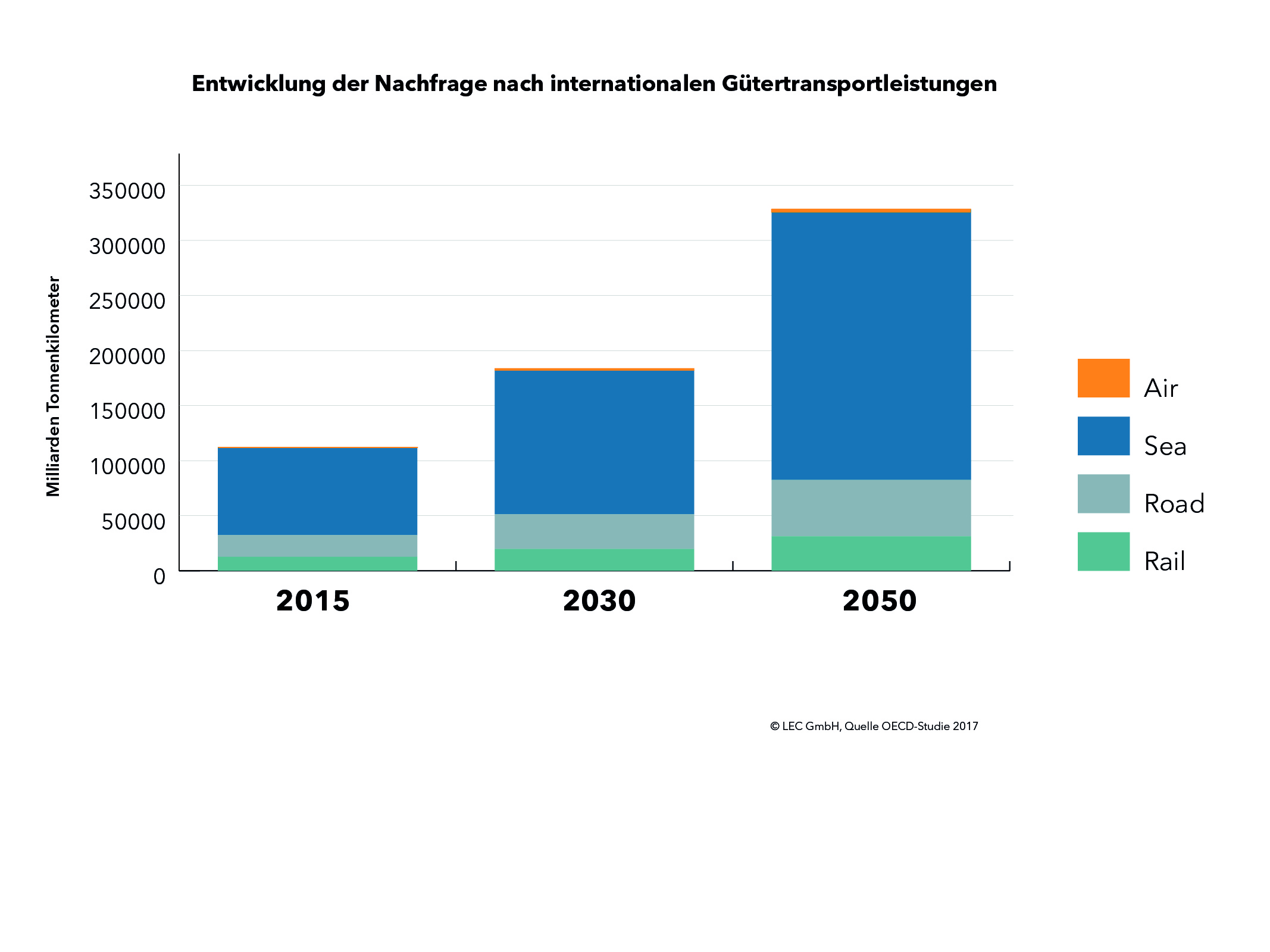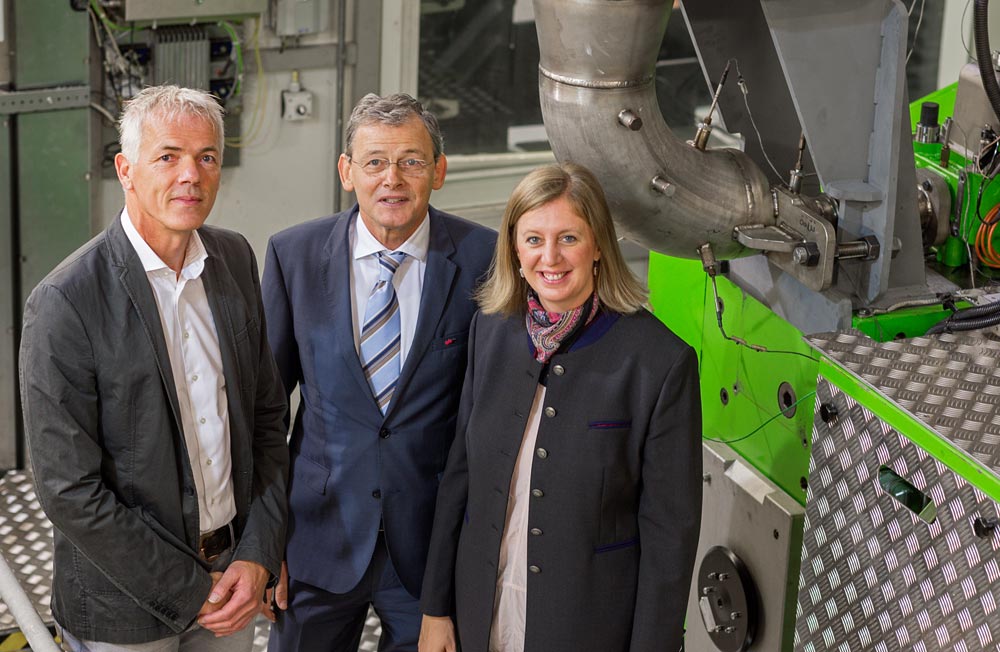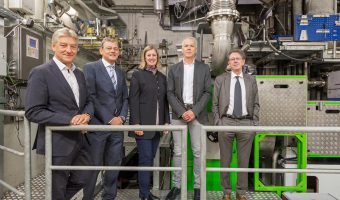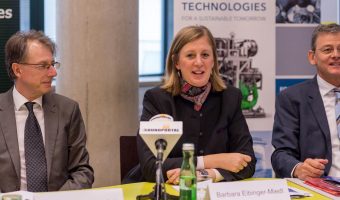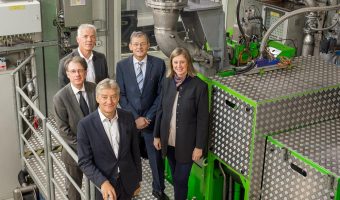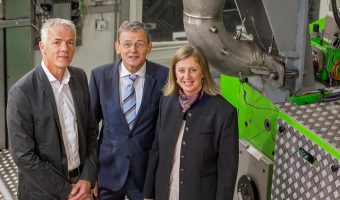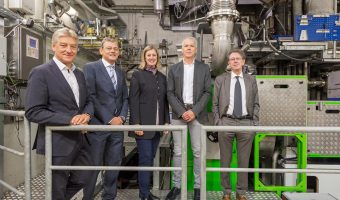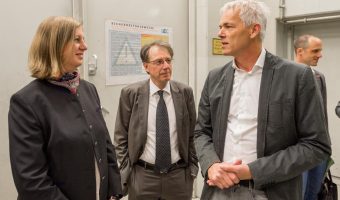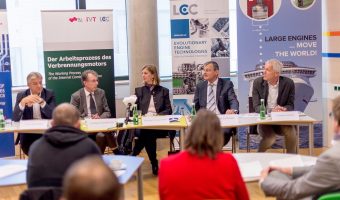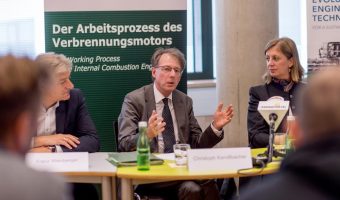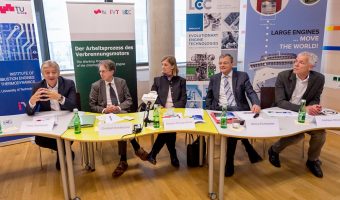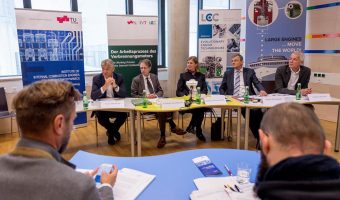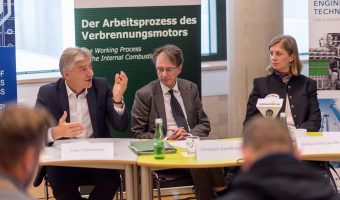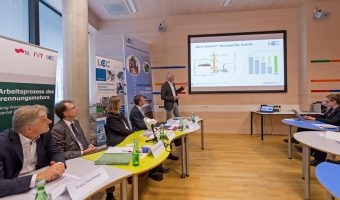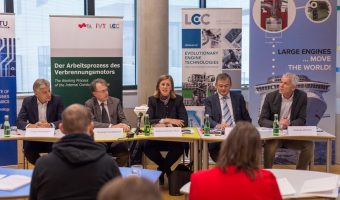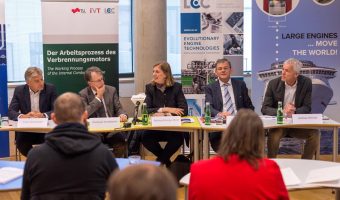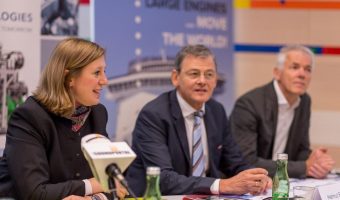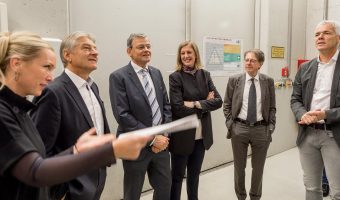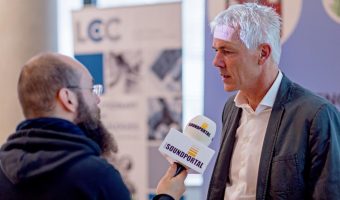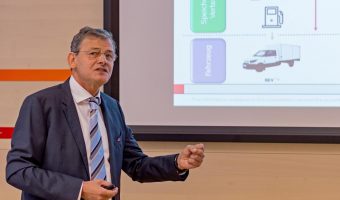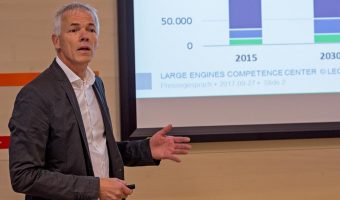Engine Research Essential for Climate Protection
Engine Research Essential for Climate Protection
A current OECD study shows it clearly: Until 2050 the worldwide freight volume (kilometres) will triple and thus the carbon dioxid emission will increase by 160 percent, according to the result of the “ITF Traffic Prospect 2017”. Further investments into engine research are therefore essential in order to keep improving the emission figures in freight transport.
Under the motto “Engien Research Essential for Climate Protection” the second event of the LEC-IVT-event series with the overarching theme “Are Combustion Engines still necessary nowadays?” took place. The aim of the event series is to offer the media a sound platform for current questions.
The top-class panel consisted of the Styrian Secretary of Economy, Tourism, Science, and Research Barbara Eibinger-Miedl, Christoph Kendlbacher from the Robert Bosch AG, and Franz Weinberger from MAN.
The conclusion of the event: “The internal combustion engine will play an important role in the coming years, especially with regards to freight transport. The reduction of pollution and greenhouse gas emissions are in the forefront of the research work, in close cooperation with the economy. A multidisciplinary approach will be the key to finding the solutions for these challenging research tasks, which will also find expression in the training sector.
For the accomplishment of the climate goals research is indispensable, but it also has great potential: “Zero Impact”, or rather “Zero Emission”, is a technically realisable goal within the next 10 to 15 years, as stated by the engine experts Wimmer and Eichlseder.
All information about the event is available as for download. Use of the documents and pictures free, copyright must be inidcated.
Information about the international engine conference “The Working Process of the Internal Combustion Engine” (28.09. – 29.09.2017 in Graz, Austria) is available here.

